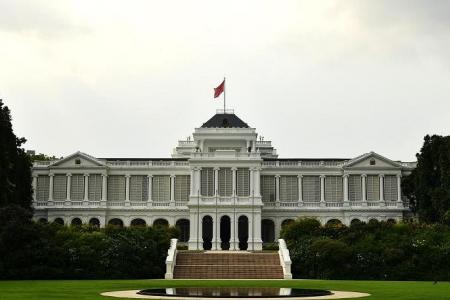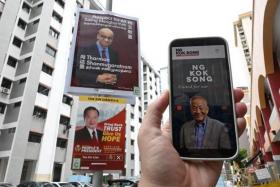If there is no contest in the presidential election, will Sept 1 still be a public holiday?
Singaporeans will head to the polls on Sept 1 to vote for the nation’s ninth president if more than one candidate qualifies to run for the post.
They will know if they will get to cast their vote or if there will be a walkover on Nomination Day next Tuesday.
If there is only one eligible candidate, he or she will be declared the president on Nomination Day.
Here are six things to know ahead of the presidential election.
1. If there is a walkover, will Sept 1 still be a public holiday?
If only one person qualifies to run for the presidency and no voting is required, there will be no Polling Day on Sept 1 – and correspondingly no public holiday, according to the Elections Department (ELD).
In this case, Sept 1 will be a regular work and school day.
If more than one person qualifies to run for the presidency, Singaporeans will cast their votes on Sept 1, which will be a public holiday, ELD said earlier this month.
Regardless of whether there is a need for Polling Day, the Teachers’ Day school holiday – previously scheduled for Sept 1 – has been moved to Sept 11.
N-level examinations scheduled on Sept 11 have been shifted to Sept 12 and Sept 20 to provide certainty for candidates preparing for the examinations, said the Ministry of Education earlier this month.
2. If I am overseas on holiday on Polling Day, can I vote?
No. Singaporeans who are overseas on holiday on Polling Day will not be able to vote.
They will have their names removed from the registers of electors, which means they cannot vote at any subsequent presidential or parliamentary election unless their names are restored.
According to the ELD website, those who are overseas on Polling Day can apply to have their names restored for free as it is an acceptable reason for not voting.
Only Singaporeans living overseas are allowed to vote by post or at an overseas polling station.
3. Will overseas votes have an impact on the outcome of the election?
Overseas votes may have an impact on the outcome of the election if the number of overseas votes cast is greater than the difference between the number of local votes polled for the top two candidates, according to ELD.
In such a case, the returning officer will defer the declaration of the candidate elected until the day after the overseas votes are counted.
If overseas votes have no impact on the outcome of the election, the returning officer will declare the candidate who received the highest number of local votes elected. The overseas votes will still be counted.
At the 2020 General Election, there were 6,570 registered overseas voters, and 4,794 of them cast their ballots.
About 200,000 Singaporeans were living overseas then.
4. What if I am hospitalised or expected to give birth on Polling Day?
Those hospitalised on Polling Day will not be able to vote as there will be no voting facilities in hospitals. Their names will be removed from the registers after the elections.
They can apply to have their names restored to the registers for free as hospitalisation is a valid reason for not voting, according to ELD.
5. What are valid reasons for not voting?
According to ELD, some valid reasons for not voting include overseas studies, working abroad on Polling Day, overseas holidays that were planned before Nomination Day, living with a spouse who is working or studying abroad, and illness or childbirth.
6. What help is provided for seniors and people with disabilities at polling stations?
There will be special drop-off points near the voting areas at polling stations for vehicles ferrying seniors and people with disabilities, according to ELD.
Voting areas will be barrier-free and wheelchairs will be provided for voters who need them.
Within the voting area, seniors and voters with disabilities can join a priority queue to get their ballot papers.
According to ELD, one caregiver, who must be a valid voter, will be allowed to wait in the priority queue with the voter using a wheelchair.
But election officials will guide the voter through the entire voting process, if needed.
This includes having the election officials mark the ballot paper as directed by the voter, with the officials under oath to keep the voter’s choice secret.
Stencils will be given to voters who are visually impaired so that they can mark the ballot paper themselves without assistance.
The caregiver must vote separately from the voter using a wheelchair, and meet him at the exit.
Get The New Paper on your phone with the free TNP app. Download from the Apple App Store or Google Play Store now


